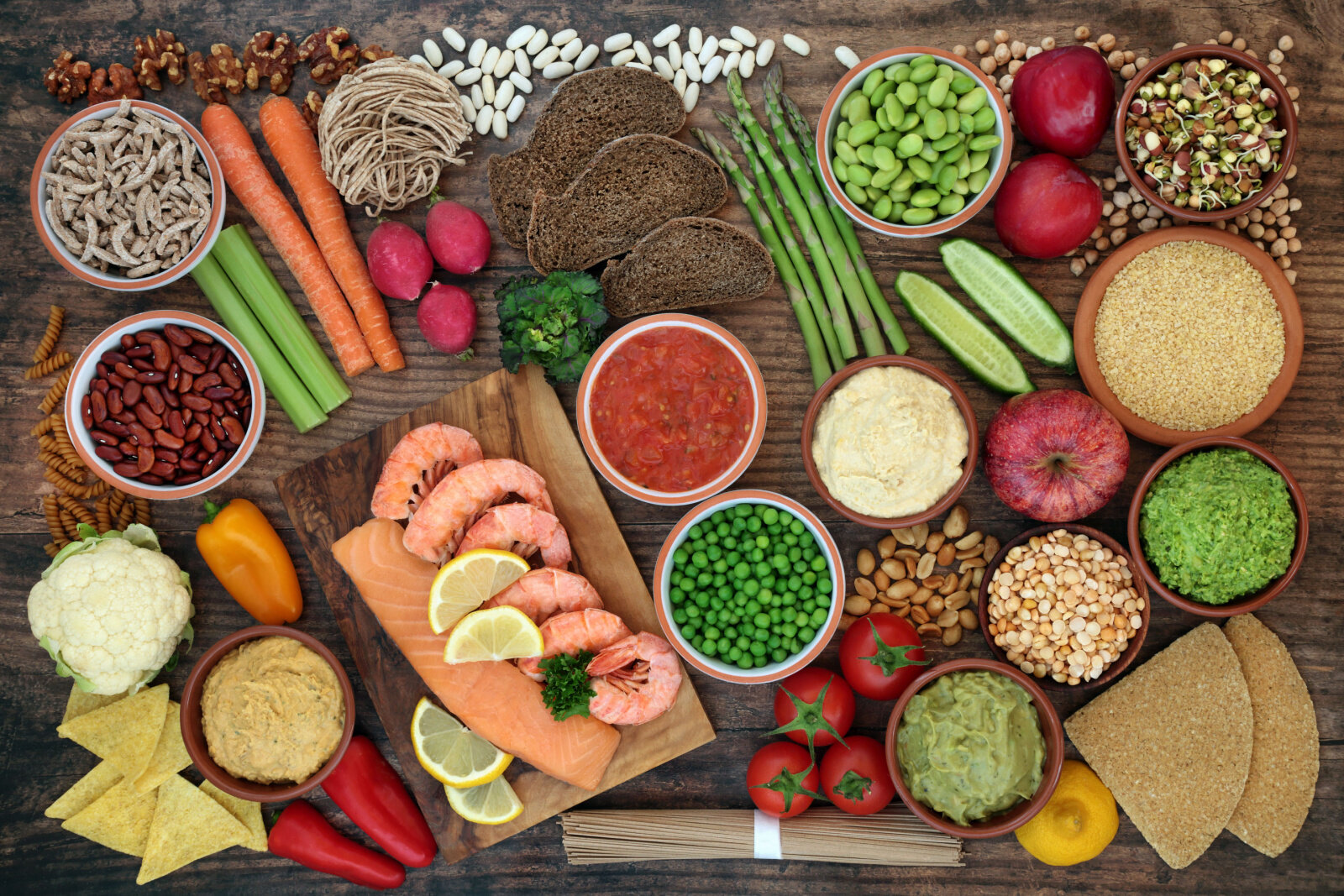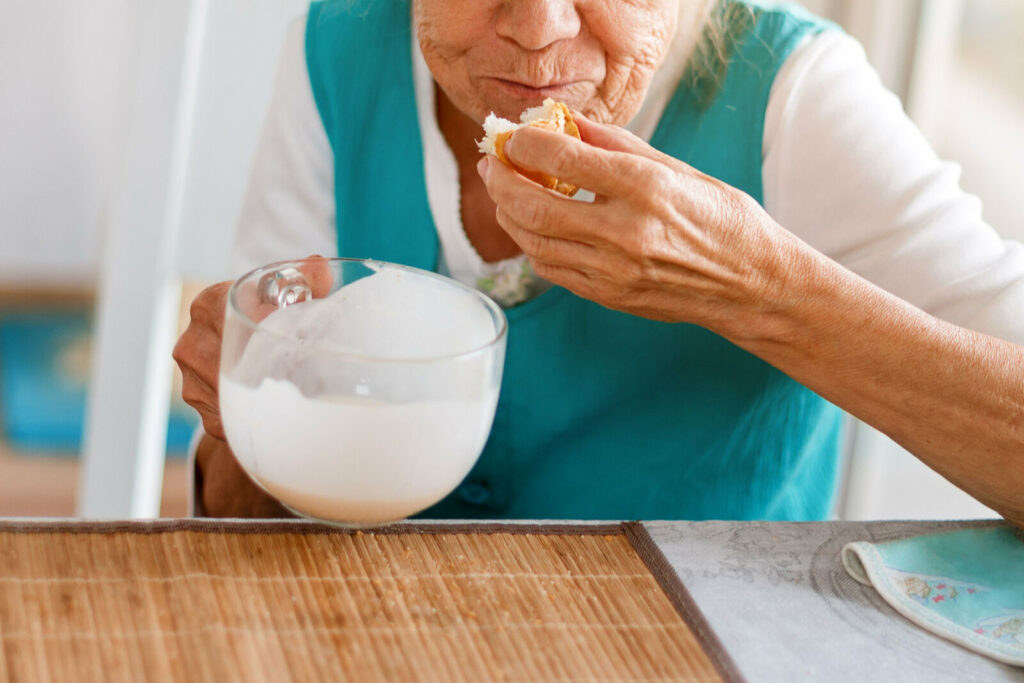Recognizing Malnutrition Risks
Malnutrition in seniors is underrecognized and undertreated. In the US, more than $51 billion is spent annually on health care costs associated with disease-related malnutrition in older adults. Many factors contribute to increased risks in elderly populations, from limited resources to health conditions.
How do lifestyle and community affect nutrition? What can seniors and their caregivers do to treat malnutrition?
What Is Malnutrition?
Malnutrition is when the body does not receive an appropriate amount of nutrients. An individual may appear healthy or overweight but be malnourished. Rather than how much you eat, what you eat that matters. Seniors need the right balance of nutrients and minerals to maintain their health.
Poor nutrition can affect your health in multiple ways, including:
- Bone & muscle strength
- Mobility & posture
- Healing & the ability to fight illnesses
- Organ health & function
Causes of Malnutrition in Seniors
Older adults are more at risk for malnutrition because nutrition needs change. Health conditions can also impact appetite, digestion, or eating habits. Common factors include:
- Chewing & swallowing problems
- Decreased appetite
- Decreased ability to absorb nutrients
- Changes to metabolism & digestive system
- Weakened sense of taste
Changes in physical and cognitive abilities can impact a senior’s ability to prepare meals or make healthy food choices, including grocery shopping, cooking, or eating. When seniors live alone, they may have limited transportation or assistance. They may be unable or reluctant to seek help from others, either because they don’t realize they need help or don’t have a nearby support system.
Older adults with dementia or Alzheimer’s disease may not recognize food or develop unexpected preferences. Or, they may believe they’ve already eaten and are not hungry for another meal. Limiting distractions during mealtime, feeding smaller (but more frequent) portions, and offering simple finger foods can help.
Depression or social isolation can also contribute to poor nutrition. Poor diet choices and depression are often interlinked, with either possibly leading to the other. Therefore, practicing healthy eating habits can also positively affect mood.
Humans are social creatures, and sharing a meal with someone can make it easier to enjoy food. Eating alone can make seniors feel lonely and decrease their appetite. Eating together is a chance to model healthy eating.

Preventing Malnutrition in Seniors
There are many ways family members and caregivers can help prevent or treat malnutrition in their elderly loved ones. Here are a few simple steps to consider:
Malnutrition is quality, not quantity. A healthy diet balances how much you eat (calories) and the food quality (nutrients). Seniors who appear obese can be malnourished. Poor nutrition can come in all shapes and sizes. Therefore, seniors must have regular checkups with a health care provider to assess their health and ensure they receive the nutrients they need.
Make smart food choices. Most people know the basics of avoiding added sugar or greasy foods, but what about the differences between lean chicken and a steak? Broccoli and snap peas? Seniors can enjoy a varied diet while prioritizing the nutrients they need to maintain their health.
Seniors can consult MyPlate for a closer look at what they need as individuals. Nutrition needs vary depending on activity level, health, lifestyle, gender—and many more unique factors.
Add nutritional supplements. When it’s challenging to receive the nutrients you need through food, supplements can support your diet. Healthy eating is essential (even with the addition of supplements), but receiving a measured dose can help lessen the burden. Supplements can provide protein, calories, vitamins, minerals, and more.
Take care of your oral health. Dental and oral problems can impact your ability to eat well or enjoy food. So it’s crucial that seniors visit the dentist regularly to take care of their teeth, gums, jaw, and oral structures. Even when seniors don’t complain about their teeth, dentists can detect health issues affecting their whole-body health.
Consult your health care provider. Seniors should talk to their doctor when they experience changes in appetite, difficulty chewing or swallowing, unintentional weight loss, or any issues that affect eating. Seeking professional advice can help seniors and their loved ones find personalized advice and solutions.
Ask for help. When barriers prevent nutrition, seniors should have access to family, caregivers, or a community that can help. For example, when buying or preparing food is a problem, seniors may enlist the help of a driver or meal preparation services.
There are many ways caregivers can support seniors, whether they’re helping around the kitchen or connecting seniors with a health care provider.
Facing Challenges Together
Success is always easier with support. Having resources and a close-knit community can offer seniors the tools and companionship they need to face challenges. At Parsons House Preston Hollow, we provide customizable lifestyle options, life-enhancing activities, and a range of services to help our residents thrive.Whether you’re looking for chef-prepared meals or a caring community to share a meal with, we hope you’ll contact us or book a tour to learn more!


